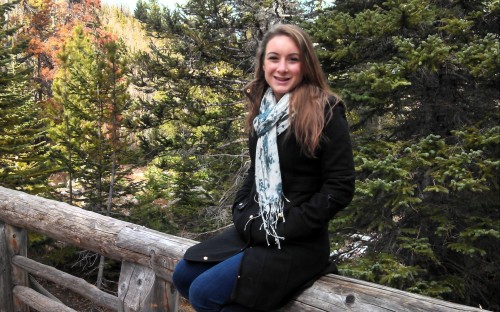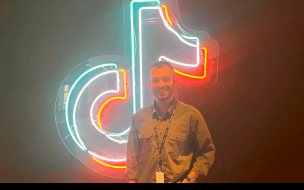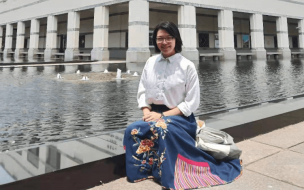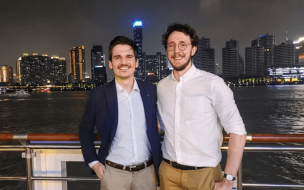Alyssa Shadinger is a certified public accountant (CPA), a senior financial advisory and risk management consultant at consultancy firm Protiviti, and the co-founder of a non-profit company that seeks to improve the lives of less fortunate women in her community.
Becoming a CPA is no easy feat, but Alyssa realized that to become a business leader she needs greater management skills, which she hopes to gain through an MBA.
Keen to start an MBA program in 2016, she plans to use this year to live outside of her comfort zone, and to raise money for her non-profit venture, Future Female Leaders of America.
As a senior consultant, what has been the most interesting project that you have worked on?
I had the unique and challenging opportunity to help a major healthcare player assess and enhance their compliance activities during the implementation of the Patient Protection and Affordable Care Act.
Becoming deeply knowledgeable of the healthcare reform laws has not only helped our client launch over 20 products, but it has also proved an interesting – if not impassioned – conversation starter.
You are already a CPA – why do you want gain an MBA as well?
An MBA will help refine my management skills and prepare me for the next level of my career. Becoming a CPA is a very challenging task. It means I am proficient in accounting and also assures colleagues that I have strong analytical skills.
However, to be an effective leader I also need to be able to look at the big picture and objectively evaluate solutions. I also need to be able to interact with colleagues to form strong teams. I believe the MBA will help me perfect these skills.
You are planning to start an MBA in 2016. What are your career plans for 2015?
I have big plans for 2015. First, I am taking a 10-week sabbatical from work to volunteer and travel in Thailand, Cambodia, Vietnam and Laos. I believe this time away will broaden my perspective.
I am also interested in working abroad post-MBA, so this trip will help me figure out if that is something I truly want.
I will also be working hard this year to raise money for the non-profit my sister, a friend, and I started in 2013 – Future Female Leaders of America. We started this foundation as a way to give back to the community where we grew up.
I remember taking health class in high school and learning that our county had the highest female dropout and teen pregnancy rates in the state. We were all fortunate to receive excellent public school educations, however we felt the community was short on resources, specifically for at-risk young women.
Our goal for 2015 is to raise $5,000 in college or trade school scholarship funding for girls from southern NJ [New Jersey].
We would also like to implement at least one after-school program to target at-risk young women and educate them on career options, college applications, and other programs available to assist them with finishing high school and transitioning to college or the workforce.
Which business schools are you planning to apply to?
I still need to narrow my list, but right now I am strongly considering: HBS [Harvard Business School]; Stanford GSB; Wharton [School]; Yale SOM; Tuck [School of Business]; Kellogg [School of Management]; INSEAD; IESE [Business School]; Johnson [Cornell]; Tepper [School of Business]; [Duke’s] Fuqua [School of Business]; Haas [School of Business].
What do you look for in a business school?
There are a few main factors that are driving my school choices. The first is personal fit which I feel is very important because I will spend two years of my life at this school.
I want my alumni network to be strong and comprised of people with similar values; a network I can reach out to 10 years down the road, when I am looking for a new employee or wanting to get involved in a service project.
I also feel that academics are extremely important. I was lucky enough to attend Kellogg Women’s Leadership Workshop this May [2014] and sit in on classes and presentations from professors. They were all so engaging. I remember feeling excited and motivated to apply to Kellogg.
How will you finance your MBA?
This sure is the elephant in the room. I will use a combination of many sources. I am optimistic that my strong academic and professional background will help me secure some scholarship funding.
However, I realize that scholarship competition is fierce, so I have also been saving and investing as much as possible [over] the last four years. [But] with the rising cost of MBA programs, that still would not cover all of it, so I will probably end up taking out some student loans.
In undergrad I was a bartender and a blackjack dealer, so I could put those skills back to use on weekends.
Have you started preparing for the GMAT?
I completed the GMAT in 2011 when I was still studying for my undergrad degree. I really crammed for about a month and scored a 730. I am satisfied with that score and have decided to focus the time I would spend restudying on other areas of my candidacy.
What are your future career plans?
Ultimately, I would love to work as a finance executive for start-up companies and non-profits. I really enjoy helping other people realize and achieve their goals. I also love researching and solving challenging financial and organizational problems.
I want to blend those passions into a fun, fulfilling career, and I feel non-profits and start-ups provide the perfect environment to do just that.
Student Reviews
Carnegie Mellon: Tepper
RECAPTHA :
a8
de
c5
31







